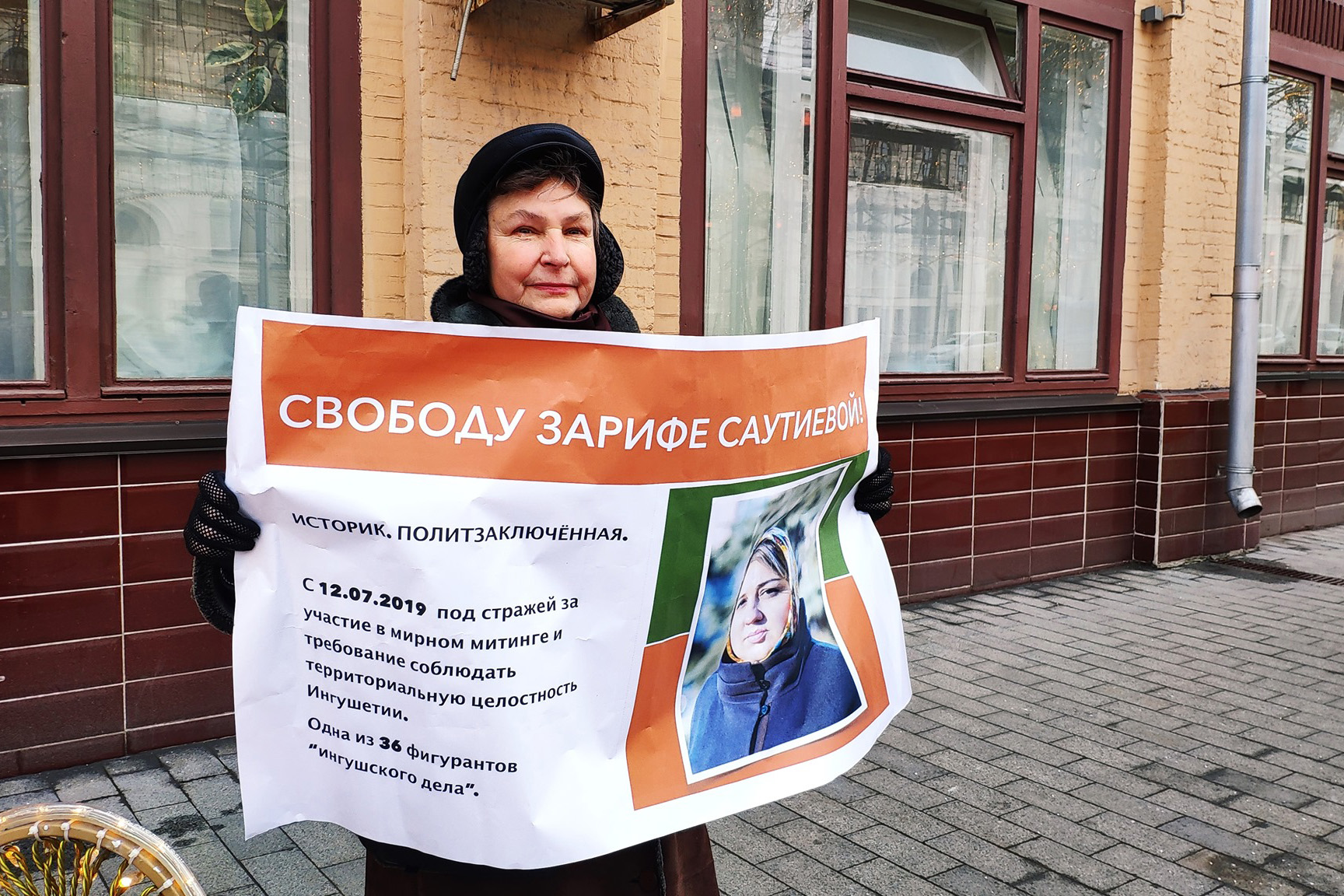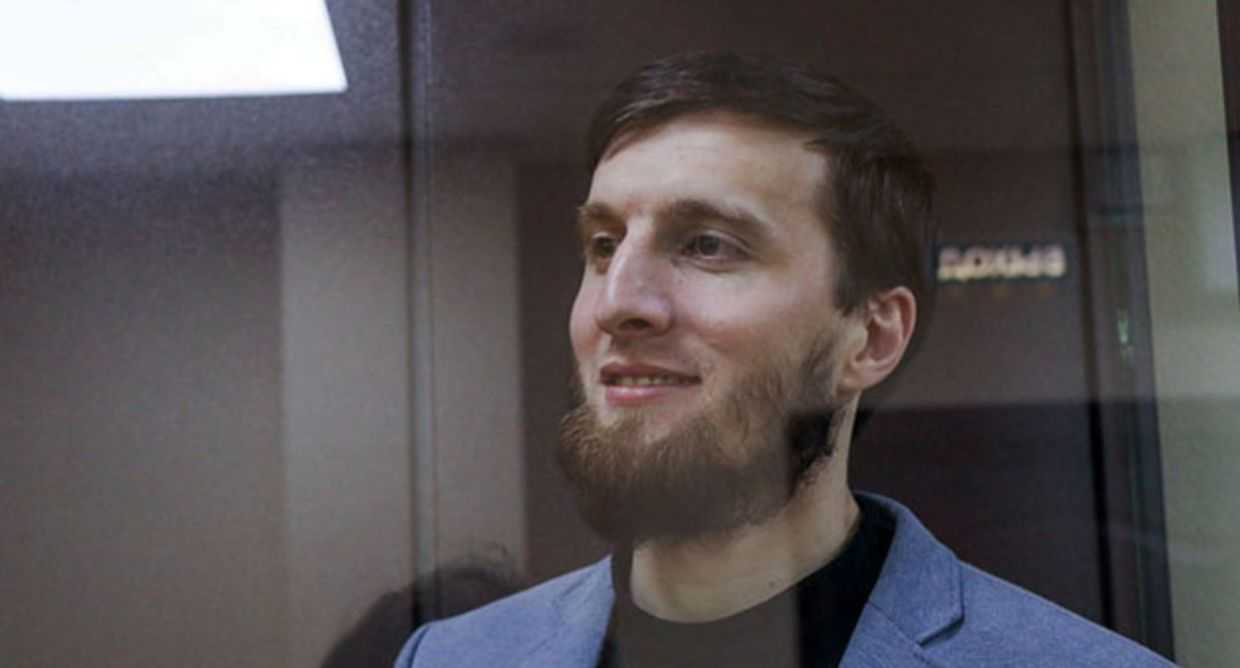
A volunteer group in the Russian Republic of Ingushetia has shut down after pressure from the authorities on several members. Nyeotlozhka (ambulance) had been providing aid to people detained in the wake of the Chechen–Ingush land deal.
The group was created in the summer of 2019 following the arrests of dozens of participants of March protests over the deal. The group purchased and delivered donations of food, medicine, and other daily necessities to the detention centres.
Nyeotlozhka’s founder, Boris Kodzoyev, announced their dissolution on 13 February in their Facebook group.
‘We can no longer do this systematically and without losses or risks to someone’s fate — I will not take responsibility [for that]’, Kodzoyev wrote.
‘For over seven months, our volunteers, gritting their teeth, did everything possible and impossible to alleviate the situation of the prisoners and their families. I would like to thank everyone who participated in all this, investing mentally and physically in each delivery’.
On 29 January, the home and workplace of one of the group’s volunteers, Asya Ausheva, was searched. Ausheva worked at the Museum of Victims of Political Repression.

After the search, Ausheva was summoned to the Centre for Combating Extremism in Ingushetia and in Kabardino-Balkaria in connection with her involvement in Nyeotlozhka.
According to Caucasian Knot, security officials pressed Ausheva, accusing Nyeotlozhka of ‘financing extremists’, referring to the arrested leaders of the Ingush protest who have been charged with creating an extremist community.
In January–February, Aza Khalukhayeva, who was coordinating the group’s activities, was repeatedly summoned to the Prosecutor’s Office and the Centre for Combating Extremism in Ingushetia. The group’s founder, Boris Kodzoyev, was summoned to the main department of the Russian Ministry of Internal Affairs in Moscow on 5 February.
‘They asked questions about the activities of Nyeotlozhka’, Kodzoyev told OC Media. ‘Who created the organisation, who it consists of, how the money is distributed, who receives it, to whom I give it back, is there any documentary evidence of our spending?’
Pressure on the group led to anger from some on social networks. Magomed Bekov, a lawyer representing arrested protest leader Musa Malsagov, called the persecution of Nyeotlozhka illegal.
‘How else could you call what [the authorities] are doing in relation to the volunteers of the Nyeotlozhka project […] other than a “bandit raid of a charity” ’, he wrote on Facebook.
Magas Protest
The rally on 26–27 March demanding the resignation of then–head of Ingushetia, Yunus-Bek Yevkurov, and the cancellation of the border agreement with Chechnya signed in 2018, ended in a skirmish with officers of the Russian National Guard.
Under the widely unpopular deal signed by Yevkurov and his Chechen counterpart, Ramzan Kadyrov, in September 2018, Ingushetia handed around 340 square kilometres (9% of its territory) to Chechnya.
In April, police searched the homes of participants of the unauthorised 27 March rally and dozens were arrested and accused of using violence against government officials. The protest leaders who were arrested were later accused of organising the violence.
Several people have already been convicted and sentenced from 4 to 21 months in a penal colony. The Memorial Human Rights Centre has called the six arrested protest leaders ‘political prisoners’.
An activist ‘under surveillance’
Another volunteer from Nyeotlozhka, Mukhammad Azhigov, wrote on Facebook on 16 February that he believed he was under surveillance.
Azhigov told OC Media that a friend called him and ‘informed me that another friend of mine was summoned to the Centre for Combating Extremism, and they were asking him about me and about Yunus Vedzizhev.’
Vedzizhev, who is not connected to the Nyeotlozhka group, allegedly opened fire on police on 14 February.
The shootout reportedly occurred following a search of Vedzizhev’s house in which weapons and ammunition were found.
Azhigov told OC Media that Vedzizhev called him on the day of the search, as his mother lived nearby.
‘He asked if his mother’s house, which neighbours mine, was being searched’, Azhigov said.
According to Azhigov, their conversation lasted just a few seconds, and the next day he noticed the surveillance.
Azhigov said that he was afraid the authorities planned to plant evidence on him or attempt to tie him to Vedzizhev.







